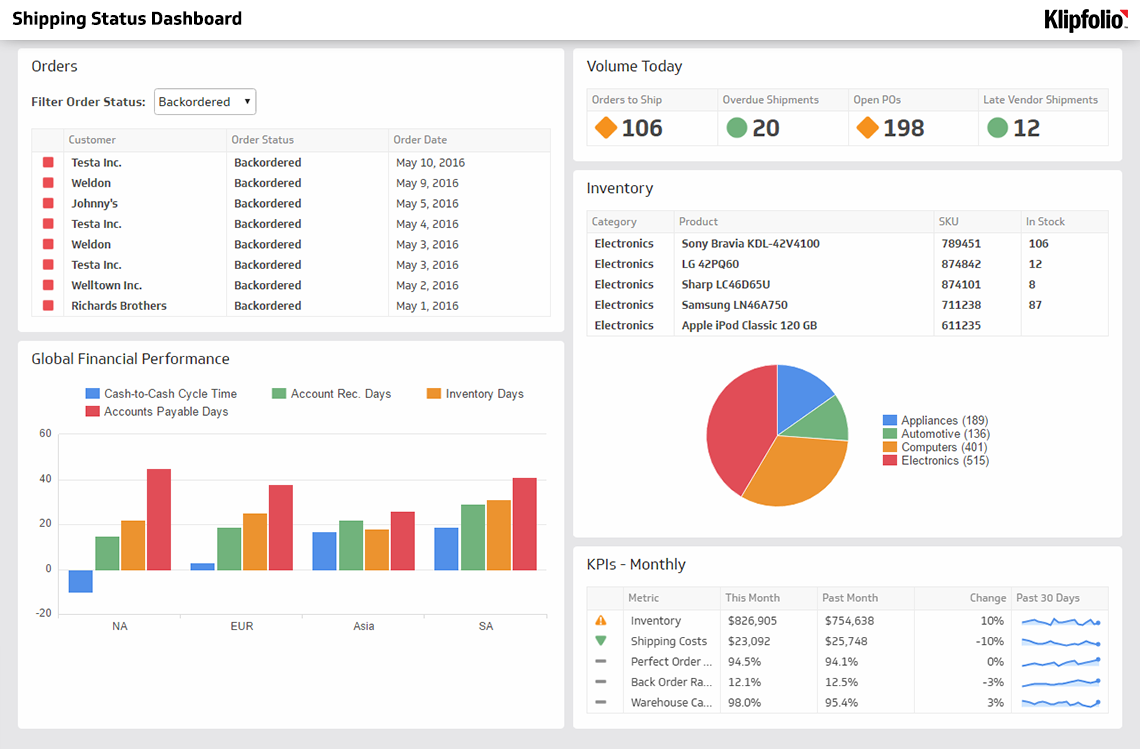
Unlocking the Power of KPIs: A Guide to Refining and Maximizing Performance Metrics
KPIs, or Key Performance Indicators, are essential tools for businesses seeking to measure and track their success. However, many organizations fall into the trap of using generic or outdated KPIs that fail to provide meaningful insights. In order to fully unlock the power of KPIs, it is crucial to refine and tailor these metrics to align with the specific goals and objectives of the company.
When it comes to refining KPIs, one size definitely does not fit all. Each organization has its own unique set of priorities and areas of focus, making it necessary to identify and define metrics that accurately reflect these aspects. By carefully analyzing business objectives and aligning them with the corresponding KPIs, companies can ensure that their performance metrics are directly tied to what actually matters for their success.
Moreover, refining KPIs involves continuously evaluating and updating these metrics to stay relevant in an ever-changing business landscape. As market conditions fluctuate and business objectives evolve, it is important to regularly review and refine the KPIs to accurately measure performance. Utilizing real-time data and advanced analytical tools can provide insights needed to make informed decisions and adapt metrics accordingly.
In this guide, we will explore the importance of refining KPIs and delve into strategies for maximizing their impact. From identifying key business objectives and mapping them to specific metrics, to utilizing technology and leveraging data, we will provide practical tips and insights to help organizations unlock the true power of KPIs. By refining and maximizing performance metrics, businesses can gain a competitive edge, drive growth, and ultimately achieve their goals with greater precision.
Common Mistakes in Defining KPIs
Lack of Clear Objectives:
One common mistake in defining KPIs is a lack of clear objectives. Without clearly defined goals and objectives, it becomes difficult to identify the relevant metrics to track and measure performance. It is essential to have a solid understanding of what you want to achieve and clearly communicate those objectives to ensure that the KPIs align with the overall strategic direction of the organization.Selecting Too Many KPIs:
Another common mistake is selecting too many KPIs. When organizations try to measure everything, it can lead to information overload and dilution of focus. Having too many KPIs can make it challenging to identify the most critical metrics for monitoring performance and can confuse employees about what truly matters. It is crucial to be selective and choose a few key metrics that directly align with the business objectives.Neglecting Regular Evaluation and Updates:
Lastly, neglecting regular evaluation and updates of KPIs can be a significant mistake. Business environments are dynamic, and objectives can change over time. Therefore, it is important to regularly review and reassess the effectiveness of the chosen KPIs. Failing to do so can result in tracking irrelevant metrics or missing out on opportunities to improve performance. Make it a priority to periodically evaluate and update the KPIs to ensure their continued relevance and accuracy in measuring success.
Remember, refining KPIs is an ongoing process that requires attention and analysis to ensure they reflect the current strategic priorities of the organization and provide meaningful insights into performance. Avoiding these common mistakes will help unlock the true power of KPIs and enable organizations to refine and maximize their performance metrics effectively.
Strategies for Refining KPIs
Analyzing and refining Key Performance Indicators (KPIs) is crucial for organizations aiming to improve their overall performance. By identifying areas for improvement and setting meaningful targets, businesses can streamline their operations and achieve success. Here are some effective strategies to refine KPIs and enhance performance metrics:
Align with Business Objectives: Start by aligning your KPIs with your organization’s strategic goals. Review your mission and vision statements to understand the core values and objectives. Identify which KPIs directly contribute to these goals and focus on refining those specific metrics. By aligning KPIs with business priorities, you ensure that your performance measurements are relevant and actionable.
Measure What Matters: One common mistake organizations make is measuring too many KPIs, leading to data overload and confusion. To refine your KPIs, carefully select a few key metrics that matter the most for your organization’s success. For example, if customer satisfaction is a priority, focus on KPIs like Net Promoter Score or Customer Effort Score. By narrowing down your measurements to the essentials, you can gain clarity and attention towards improving the most crucial aspects of your business.
Regularly Review and Update: KPI refinement is an ongoing process, and it is essential to review and update your metrics regularly. Analyze the performance data, identify any gaps, and make adjustments as needed. Set a schedule for reviewing KPIs, whether it’s monthly, quarterly, or annually, to ensure they remain aligned with changing business needs. By consistently refining and updating your KPIs, you can adapt to market trends and stay on track towards achieving your objectives.

By implementing these strategies for refining KPIs, organizations can unlock the power of performance metrics. Remember to align KPIs with business objectives, measure what matters most, and regularly review and update your metrics to drive continuous improvement and maximize performance.
Maximizing the Impact of KPIs
To truly harness the power of Key Performance Indicators (KPIs) in monitoring and driving organizational success, it is crucial to refine and maximize these performance metrics. By fine-tuning KPIs, businesses can uncover valuable insights, identify areas for improvement, and ultimately enhance overall performance. Here are three key strategies to effectively maximize the impact of KPIs:
Set Clear and Specific Objectives:
Before refining your KPIs, it is essential to establish clear and specific objectives that align with your business goals. By defining what you want to achieve and the metrics that matter most in measuring that progress, you can ensure that your KPIs are relevant and focused. For instance, if your objective is to increase customer satisfaction, specific KPIs may include customer retention rate or Net Promoter Score (NPS). Clarity of objectives enables you to choose and refine KPIs that accurately reflect your performance.Continuously Measure and Evaluate:
Once you have identified the most relevant KPIs, it is important to continually measure and evaluate them. Regular monitoring helps you stay informed about the progress of various aspects of your business. By collecting and analyzing data, you can gain a deeper understanding of what drives your performance and make data-driven decisions to refine your KPIs further. Regular evaluation also allows you to detect any discrepancies or areas for improvement, enabling timely course corrections and optimization.Foster a Culture of Ownership and Accountability:
To maximize the impact of KPIs, it is crucial to foster a culture of ownership and accountability within your organization. Encourage employees at all levels to feel responsible for their individual KPIs and understand how their performance contributes to the overall goals. By promoting transparency and regular communication around KPIs, you can empower employees to take ownership of their work and drive collective success. This culture of accountability ensures that refining and maximizing KPIs becomes a shared responsibility across the organization.
KPIs
In conclusion, refining and maximizing the impact of KPIs is essential for optimizing organizational performance. By setting clear objectives, continuously measuring and evaluating KPIs, and fostering a culture of ownership and accountability, businesses can unlock the true power of these performance metrics and drive long-term success.




